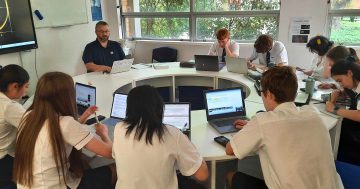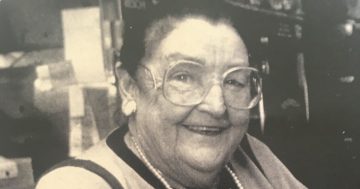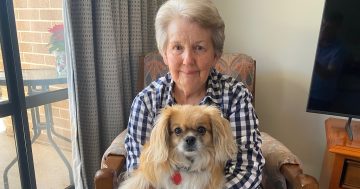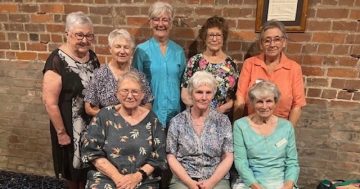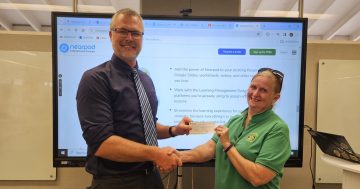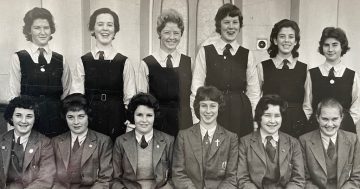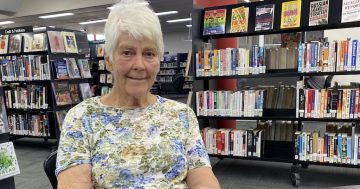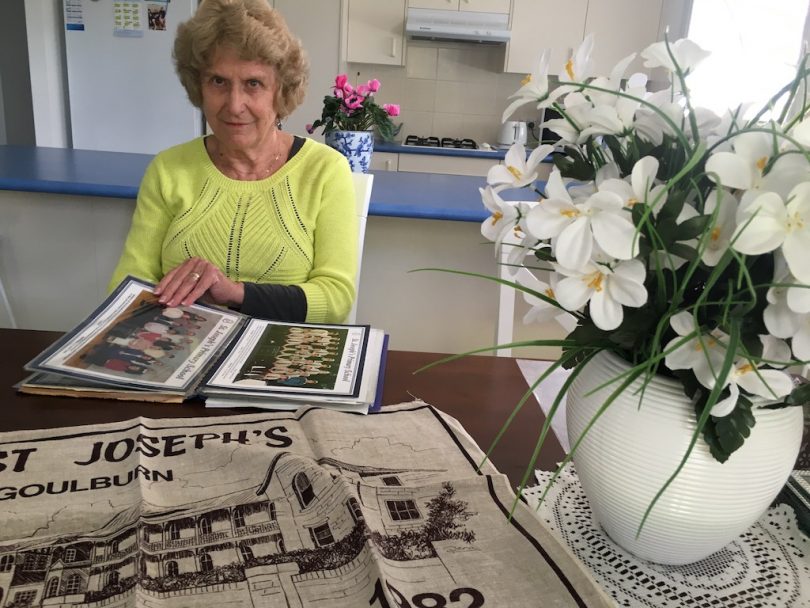
Wendy Wise looking back on her time at St Joseph’s Primary School, North Goulburn. Photo: John Thistleton.
After teaching at primary schools all her working life, Wendy Wise steps confidently into a minefield of opinions on how best to educate young children.
Her career began in the 1960s, in what educators describe as the ‘military era’.
“As teachers came into the classroom, all the children stood up. When a visitor entered a room, the children all stood up to attention,” she said. “When I was at school, the flag went up, we saluted the flag. It was all a carry-over from the war.”
Those rituals disappeared by the end of her career. Children’s education had become less regimented.
“The primary school children had fun, yes. Some of them may have picked up something,” she said.
“It comes down to a child’s personality, some thrive looking at the clouds, seeing shapes and writing stories all day and the next one would think, ‘that’s dead boring, what am I doing?’”
Her classes learned their tables methodically.
“By the end of year 3, I wanted my children to learn that so when they went on to year 4 and learned the rest of their tables, they were not behind because I hadn’t taught them properly,” she said. This was preferable to new methods which could leave a teacher wondering whether their pupils had learned anything.
Earlier, at Wagga Wagga Teaching College, Wendy was taught to treat the children as a loving parent would.
At St Joseph’s Primary School in 1967 in North Goulburn, she became the first teacher who wasn’t a Sister of St Joseph. With 44 children in her first classroom, she began to see her pupils grow and develop and enjoy light bulb moments when a concept became clear or they mastered a new skill.
Over the years, she found her most rewarding moments with parents returning to their old school to enrol their children to give them the same opportunities they had received.
Unfortunately, not everyone thrived in later life.
“I remember my husband Russell being amazed to find me in tears over an ex-student being sent to jail and asking what it had to do with me. But you do remember them and want them to have happy lives,” she said.
Some people believe children cannot learn without constant visual stimulation, but Wendy doubts this. She says a child’s imagination should provide that stimulation, the same as when they read a book.
“They should get a picture of what is in that book; it shouldn’t be all there for them,” she said.
She found eight and nine-year-old third class children were the most prepared to learn.
“They have just come out of infants school and they don’t think they know everything as opposed to a fifth or sixth class child. And fifth and sixth class children are going through puberty.”
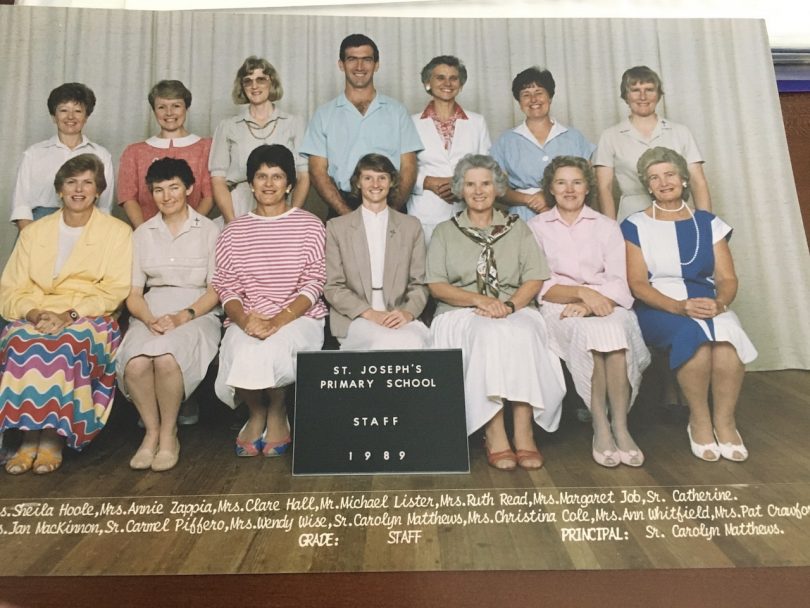
The staff of 1989. Wendy is third from the left, front row. Photo: Supplied.
In 2001 she began as acting principal at Sacred Heart Primary, Taralga, with 33 students for the entire school.
“It was strange having such a small number of students, but the community support and involvement in the school was amazing,” she said.
She joined Goulburn Evening VIEW Club (Voice, Interests and Education of Women) in 1998 and, as well as enjoying the social contact with other like-minded women, found herself back in the classroom, helping Learning for Life children complete their homework.
A Smith Family initiative, Learning for Life aims to break the poverty cycles through education. Children in need are sponsored through to the tertiary level, receiving uniforms, books, stationery and other educational opportunities.
“Education has always been an important part of my life, and I am very grateful for the opportunities it has opened up for me. Hopefully, now, through supporting the Learning for Life program, I am helping others to achieve their dreams,” she said.
Original Article published by John Thistleton on Riotact.






